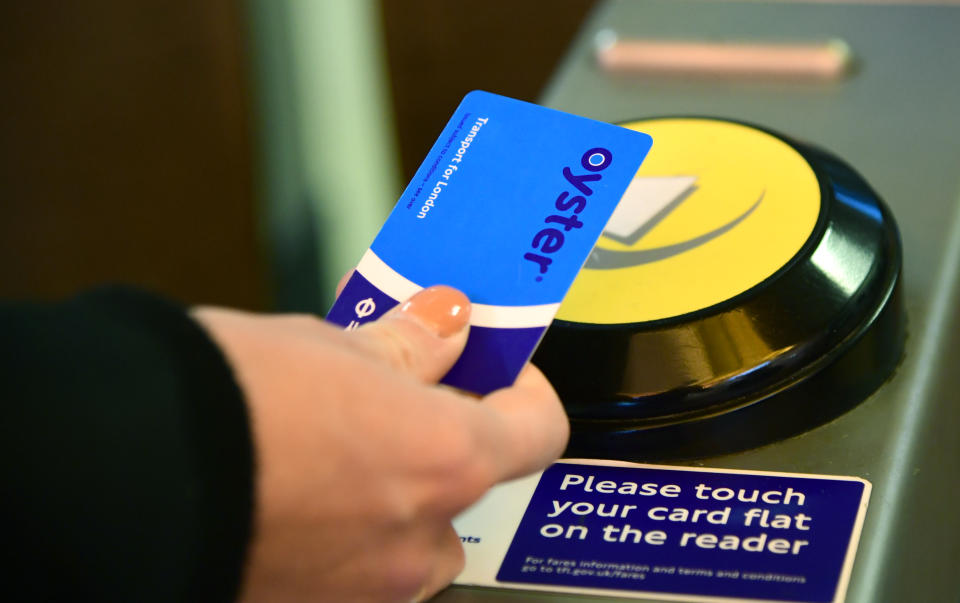Coronavirus: London bus and Tube fare hike after TfL bailout

Millions of commuters in London face above-inflation hikes in bus and Tube fares next year, as part of a rescue deal agreed for the city’s public transport services during the pandemic.
London mayor Sadiq Khan, chair of Transport for London, had warned for weeks that the operator was close to running out of cash as journeys and revenues have collapsed because of the spread of coronavirus.
A rescue deal has been agreed with central government, with the department for transport announcing a grant worth almost £1.1bn ($1.3bn) and a £505m loan.
But Khan called the deal a “sticking plaster,” as it only runs until October. The conditions for the bailout also include measures that put TfL “on a sustainable footing for the longer term,” including future fare hikes and a potential cost-cutting drive.
Officials said the mayor, who has frozen fares in recent years, had agreed to hike fares on all services TfL operates. The body oversees not only London’s bus and Underground networks, but also Overground, Docklands Light Railway, and river boat services.
READ MORE: UK government promises 11 million pothole repairs and TfL bailout
Fares will rise next year 1% faster than average UK prices, as defined by the retail price index (RPI) measure of inflation. The hike is typically based on RPI in July. It stood at 2.6% in March.
Labour mayor Khan has also been forced to accept significant intervention in TfL’s operations from the Conservative government. Central government will carry out an “immediate and broad-ranging review” of its future financial position and structure, including the “potential for efficiencies.”
Two government representatives will be installed on TfL’s board and two committees, “in order to ensure best value for money for the taxpayer.” A new taskforce will also be launched with representatives of both TfL and government, aiming at increasing services “as quickly as possible” amid anger about overcrowding on some lines at peak times.
Dave Hill, who runs the London politics website OnLondon, called the move a “power grab.”
Khan said in a statement: “This is not the deal I wanted. But it was the only deal the government put on the table and I had no choice but to accept it to keep the Tubes and buses running.”
READ MORE: London mayor Sadiq Khan warns TfL running out of cash
He said the planned fare hike was “making ordinary Londoners pay the cost for doing the right thing on COVID-19” by avoiding public transport. He added that extra cash would still be needed to keep services running given reduced fare income from lower passenger numbers. Khan proposed either permanent government funding or more power for the mayor to hike city taxes.
Transport secretary Grant Shapps had made his position clear on Thursday at the government’s daily coronavirus briefing when asked about a rescue deal and higher fares.
“It’s very important in providing a rescue package for TfL that we don’t end up in a situation where people from outside the capital are unfairly carrying the burden, by which I mean sadly… fares do end up having to rise with inflation.”
He said fare freezes, which London has seen in recent years, meant “more money isn’t going into the system and you can then have an unfair settlement.”
The department for transport also said in a press release that passengers with disabilities or over 60 who have a Freedom Pass will have to pay full fares during peak hours. Free travel for under-18s will also be suspended, though “eligible” children will be able to still travel free to school. The measures are designed to limit non-essential travel to reduce virus risks at peak times.
Watch the latest videos from Yahoo Finance UK

 Yahoo Finance
Yahoo Finance 